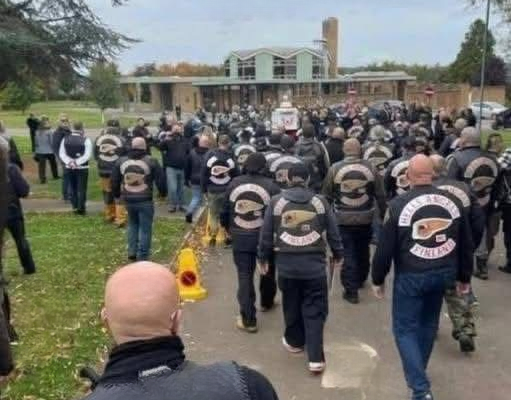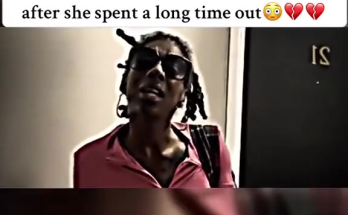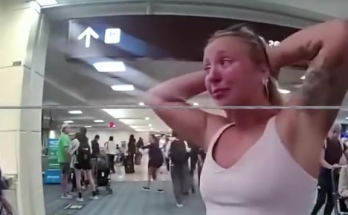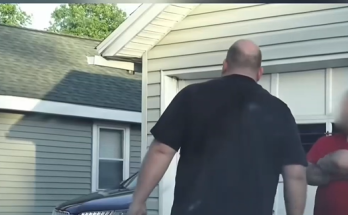Nobody expected fifty bikers at my son’s funeral—least of all the four boys who bullied him into taking his life. My fourteen-year-old, Mikey, hanged himself in our garage after enduring relentless torment at school. His suicide note named classmates who told him, day after day, to kill himself.
The police said it was “unfortunate but not criminal.” The school offered only “thoughts and prayers.” I’d never felt so powerless. Nothing I could say, nothing I could do, had stopped the cruelty that drove my child to the brink.
It was a helplessness that no parent should ever feel. And yet, in the darkest moment of our lives, a small act of kindness from unexpected heroes gave us a sense of justice and hope.

The Call That Changed Everything
Then Sam appeared. A gray-bearded biker I had known casually from the gas station, he approached me quietly one afternoon. He told me that his own nephew had also died after years of bullying. Sam had known that feeling of helplessness all too well, and he offered a solution: “Call if you want us there. No trouble—just presence.”
I didn’t hesitate. The night before the funeral, I went through Mikey’s belongings one last time. I found his journal, filled with heartache, and the countless cruel messages from the bullies at school. My hands shook as I dialed Sam’s number. I didn’t know what to expect. I only knew I needed someone, anyone, to stand with me.
The Funeral: A Wall of Protection
The next morning, the roar of Harleys echoed through the cemetery. Dozens of bikers lined up in solemn silence, forming a corridor of protection around Mikey’s family. The air was thick with grief, but also with a sense of dignity and accountability.
When the four boys who had tormented Mikey arrived with their parents, their smirks faded. Sam stepped forward and spoke with calm authority: “We’re here to make sure today is about Mikey—a boy who deserved better.”
For the first time since Mikey’s death, I felt a glimmer of relief. It was not revenge or intimidation—it was presence, acknowledgment, and solidarity with a grieving family.
Turning Grief into Action
That day, the service became more than a funeral. It became a moment of reckoning. The presence of the bikers reminded everyone that bullying has consequences. Parents and community members could no longer dismiss the torment that had driven a young life to an untimely end.
After the funeral, Sam and the bikers took their message further. They visited Mikey’s school, not to threaten but to educate. They spoke about bullying, mental health, and empathy, addressing both students and faculty. Their stories were raw and real—proof that words and actions can have lasting impact, both positive and negative.
Other districts took notice. Schools invited them to speak. Policies changed. Anti-bullying programs were strengthened. The ripple effect from that small act of solidarity spread further than I could have imagined.
The Lasting Lessons
I still carry Sam’s number in my phone. Sometimes, I ride with the group. We talk about Mikey, about lost children, and about ways to prevent another tragedy. I’ll never be able to bring him back, but I can honor his memory by helping others feel safe and seen.
What I learned through this experience is that intervention doesn’t always require legal authority or formal titles. Sometimes, presence and advocacy are enough to create change. The bikers weren’t there to punish—they were there to protect, to ensure that a child’s life was remembered and that future victims might find justice before it’s too late.
The Hidden Toll of Bullying
Mikey’s story is sadly not unique. Studies show that bullying can have severe psychological effects, including depression, anxiety, and suicidal ideation. Victims often feel isolated, misunderstood, and powerless—exactly what Mikey experienced.
Schools often lack the resources or urgency to intervene effectively, and authorities may downplay incidents as mere “childhood conflicts.” Yet for families, these are life-and-death situations.
Community intervention, like the bikers’ involvement, can amplify awareness, pressure institutions to act, and give victims the protection and validation they desperately need.
Community Heroes Can Come from Anywhere
What Sam and the bikers demonstrated is that heroes don’t always wear uniforms. They don’t always belong to official organizations. Sometimes, they are ordinary people who recognize a tragedy and decide to stand up in solidarity.
The bikers’ presence at Mikey’s funeral sent a powerful message: No child should feel powerless, and no bully should feel untouchable. Their actions sparked conversations, policy changes, and a community-wide reckoning about the consequences of bullying.
How Families Can Respond to Bullying
Mikey’s story underscores the importance of vigilance and advocacy. Parents can take several steps to protect their children:
- Listen Actively – Encourage children to share their experiences without judgment.
- Document Incidents – Keep records of bullying messages, notes, and events.
- Engage Authorities – Schools, counselors, and law enforcement should be informed early and consistently.
- Seek Community Support – Allies like advocacy groups, mental health professionals, and even local community figures can make a difference.
- Educate About Mental Health – Teach children coping skills and provide access to therapy when needed.
While no solution guarantees prevention, awareness, advocacy, and support create protective networks that save lives.
Turning Tragedy Into Change
Mikey’s death remains a wound that will never fully heal. But in the wake of his passing, his story catalyzed action that has prevented others from suffering the same fate.
The bikers didn’t just honor Mikey—they forced a conversation about bullying, accountability, and compassion. They reminded a community that silence and inaction allow cruelty to continue. And most importantly, they showed that ordinary people can make an extraordinary difference.
A Lasting Legacy
Though I lost my son, his story is not in vain. It lives on in the conversations about bullying, the strengthened policies in schools, and the ongoing work of those who step up when the system fails.
Sometimes, protection doesn’t come from laws or authority—it comes from presence, solidarity, and human compassion. Sam and his fellow bikers proved that a community can rally in unexpected ways to honor the lives of the most vulnerable.
We can’t bring Mikey back. But the thunder of motorcycles, the solidarity of strangers, and the courage to speak out against bullying may save the next child—and that gives me a measure of peace.



